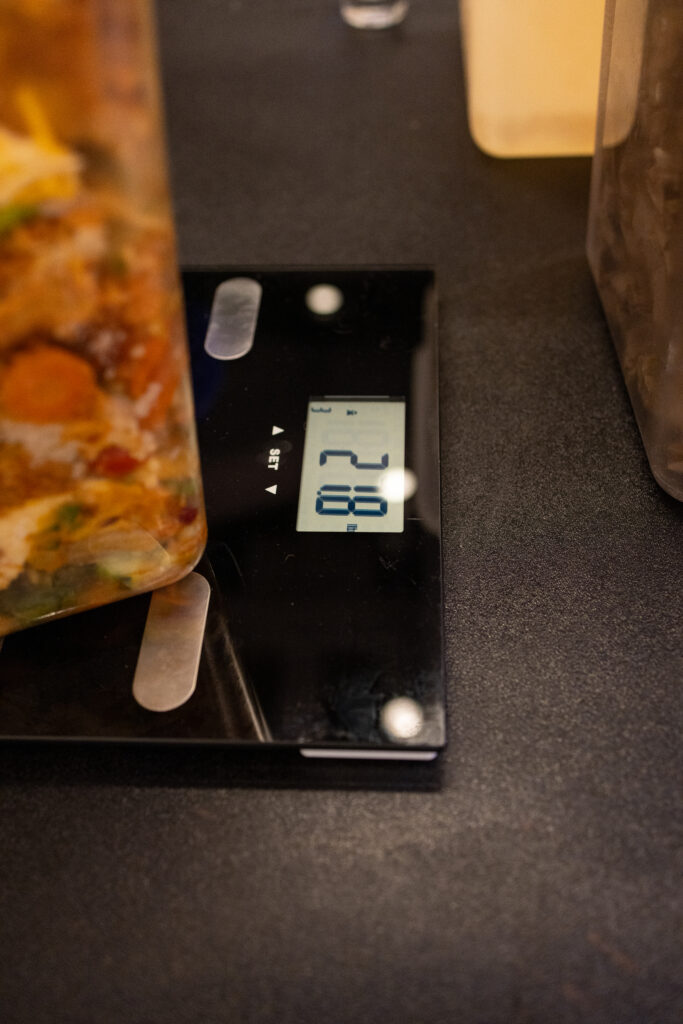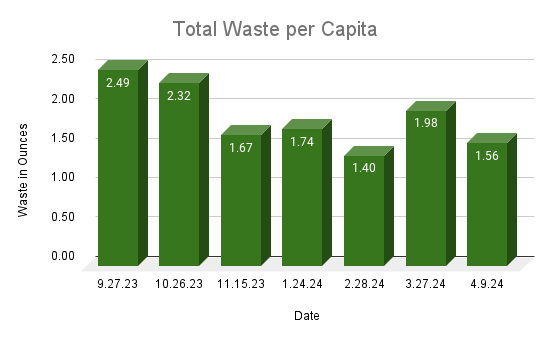By Sustainability Coordinator, Jacqui Moy


Now that another academic year has come to an end, so has another year of Weigh the Waste events. By now, you might know what’s to come when you see our Emerson sustainability staff tabling up and downstairs in the dining hall during dinner time. Every month, staff help diners sort their categories of waste into bins (edible compost, inedible compost, liquid, and trash), and then weigh the bins. Over the entire school year, Emerson’s sustainability team has kept track of these weights. Here are some major takeaways from our Weigh the Waste data.
Decrease in total waste per capita.

The total waste per diner for each month is as follows: 2.49oz in September, 2.32oz in October, 1.67oz in November, 1.74oz in January, 1.40oz in February, 1.98oz in March, and 1.57oz in April. Overall, this number decreased significantly since the beginning of the semester. Comparing September weights to April, per capita waste decreased by .93oz. On average, each diner totaled 1.88oz. This is a .42oz decrease from last year’s 2.30oz average!
Decrease in average weights for each category of waste compared to last year.
For the 2023-2024 school year, there was an average of 73.94lbs of edible compost, 6.93lbs of inedible compost, 7.67lbs of liquid, and 2.26lbs of trash for each Weigh the Waste event. Average weights have decreased in every category since last year! Last year, each event averaged 79.13lbs for edible compost, 11.20 lbs for inedible compost, 9.58lbs for liquid, and 7.18lbs for trash.
42% of survey respondents attribute their food waste to being served too much.
At every Weigh the Waste event, diners were also surveyed as to why they had leftovers. 41.5% responded that they were served too much, 18.4% took too much, 18.9% didn’t like the food, 16.8% had inedible waste, and 3.5% ran out of time to eat. In total, 489 responses to the survey were received over this school year. Thank you all who gave this feedback! We are constantly collaborating with the dining team to address ways to decrease waste.
Overall, these are very encouraging trends! In general, we want to decrease the amount of waste we have here at Emerson, and decreasing our edible compost weights is one great way to address this. When we create less food waste, we lower our greenhouse gas emissions and use less water, land, and other resources needed to grow, process, and transport food. We encourage all to stay conscious of their food waste over the summer and we look forward to even more progress next year!
